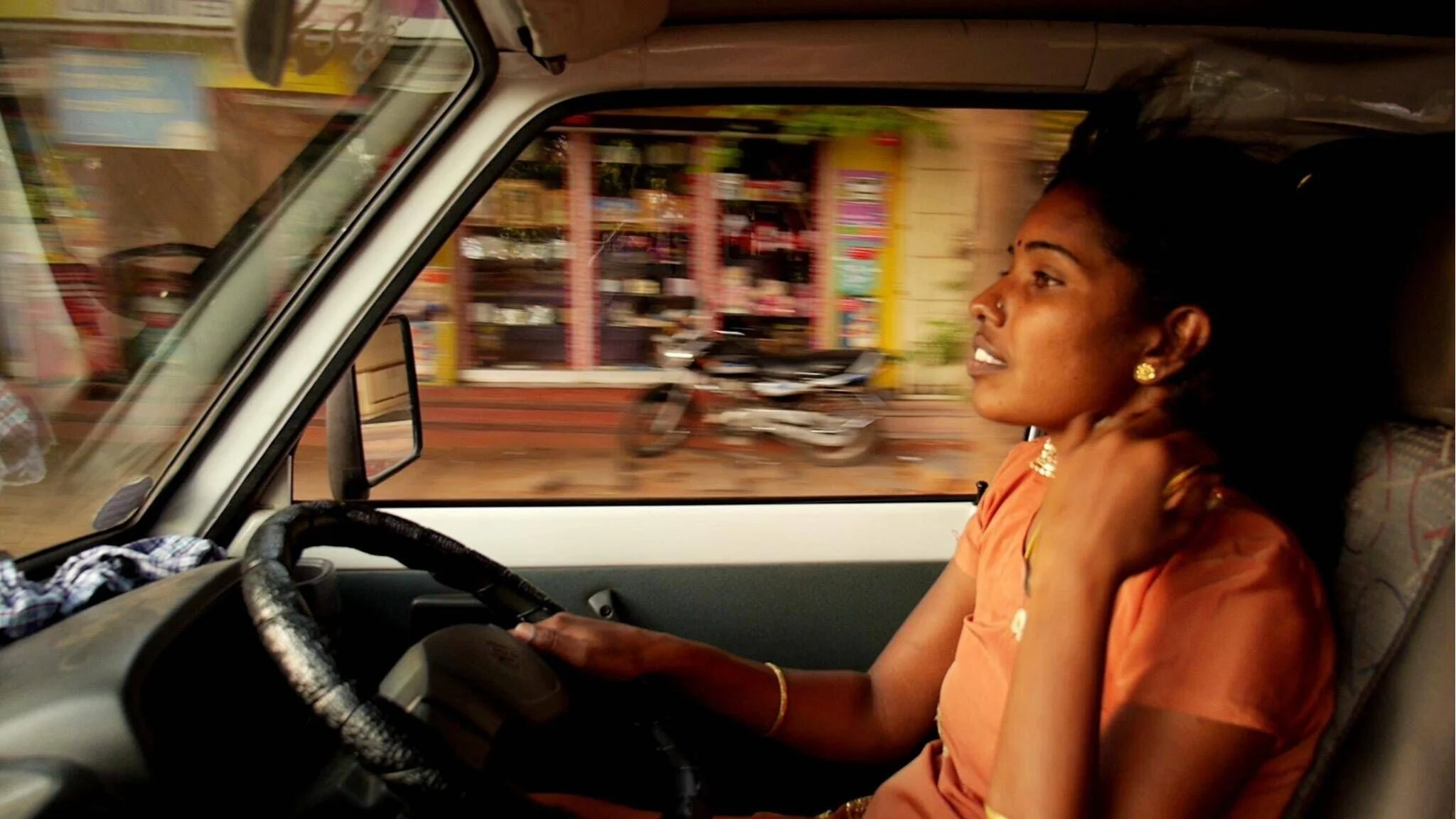Driving with Selvi
A deeply sympathetic portrayal of one woman's life in India regardless of weaknesses in the telling.
As an example of film craft Elisa Paloschi's Driving with Selvi leaves a lot to be desired, but that may matter little to most audiences. The fact is that Selvi herself, a young woman from the south of India who overcame a terrible childhood but refused to be disheartened by it, is such an engaging presence that those viewing this documentary about her may well be entranced. Her appeal on screen - charismatic is not too strong a word - may not only carry the film, well photographed in colour by its director, but may blind them to those elements that make me feel that the quality of the filmmaking is less than the subject deserved, even if the warmth of the film is palpable.
Driving with Selvi starts with statistics about child brides (India has a spectacularly high proportion of them) as though that were to be the film's subject. But that's not really the case, even if the taxi driving village girl, Selvi, now making her way in the city, had been a child bride at fourteen forced into a marriage that proved to be abusive. The statements mislead us into expecting something other than a wholly personal tale of one woman, a woman who obtained aid from an admirable organisation known as Odanadi, went on to find a good man who became her second husband without requiring a dowry and then over the years became a mother devoted to the daughter of this second marriage before later returning to another love of her life, her work as a driver.
This story covering a whole decade is one to inspire, but the telling is ill-organised combining as it does interview footage with just occasional comment from the filmmaker, narrative material incorporating modest re-enactments (as when the film kids us that we are looking at the young Selvi) and details about Selvi's horrific childhood, some of which emerges only late on even though this is mainly a chronological work. In the early scenes past history is often heard against totally irrelevant images and there is no sense of shape, no indication of exactly what the film is building towards. It only lasts 74 minutes but I, for one, feel that it needed far stronger structuring once the shooting of the film had ended. Nevertheless, Indian life among those struggling to make do is authentically conveyed. Furthermore, Selvi's role as an achiever triumphing over a tragic start to life would be striking in itself even if she had far less of a presence in front of the camera than she undoubtedly has.
MANSEL STIMPSON
Cast: Selvi, Viji, Hariga, Stanly, Parashuru.
Dir Elisa Paloschi, Pro Elisa Paloschi, Written by Elisa Paloschi, Ph Elisa Paloschi, Ed David Kazala, Music Ken Myhr.
Eyesfull/Chicken & Egg Pictures-DocHouse.
74 mins. Canada. 2015. Rel: 7 October 2016. No Cert.


